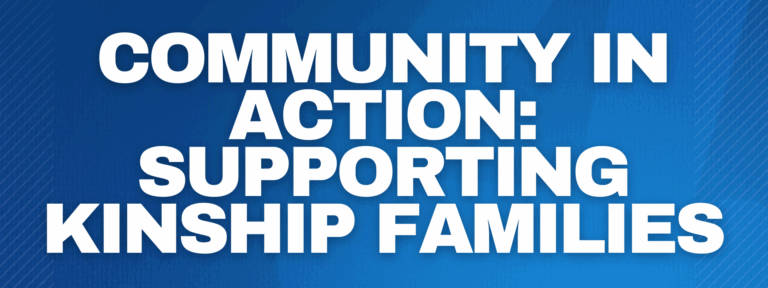
September is National Kinship Care Awareness Month, and 4Kids4Families is shining a light on the incredible families who step up every day to care for children in their extended family or close community. These caregivers open their homes and hearts, often with little to no preparation, to ensure children can remain connected to their roots, their culture, and their sense of belonging.
To honor these families and provide the support they deserve, we’re partnering with several Child Welfare Boards throughout Region 4 for an exciting initiative: Adopt a Kinship Family. Through this partnership, boards are stepping in to meet real and immediate needs, whether that’s covering licensing costs, supplying tangible items like beds or car seats, or even assisting with essential home repairs to ensure the space is safe and comfortable.
This effort is about more than just meeting needs; it’s about showing these families that they are valued, supported, and never alone in this journey. As one Kinship Specialist shared, “Every bit of support, big or small, helps families focus on what truly matters: providing stability and love to the children in their care.”
And the impact is already growing. Across the region, we’re seeing incredible stories of community members stepping up to help, making it possible for children to thrive in the homes of relatives and close family friends who love them most.
If your group, church, or organization is interested in adopting a kinship family or starting a similar effort, we’d love to connect with you. Together, we can help bridge the gap for these families and make a lasting difference. For more information or to get involved, contact our Community Relations team at CommunityRelations@4kids4families.org. Site built by Custom Website Design